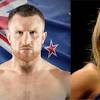As Russia struggles in Ukraine, North Korea benefits Lowy Institute

North Korea’s missile and nuclear programs make it one of the world’s most sanctioned countries. But with the war in Ukraine, Russia has risen to the top position. As North Korea and Russia are mostly cut off from the Western-led world economy, a “solidarity of the excluded” has conveniently brought both countries closer, each with their own national agendas.
Russian interests are obvious. North Korean artillery and ammunition could help Moscow’s long-term efforts in Ukraine and its ability to more credibly threaten future mobilisation and offensives, adding pressure on the West to pursue negotiations.
North Korea’s interests are more complex. Kim Jong-un ascended to power more than a decade ago, introducing a concomitant nuclear and economic development strategy, known as Byungjin Policy. After a few years of developing long-range missile capabilities and after conducting its sixth nuclear test in 2017, Kim turned to negotiations. This moment, widely known as the summit diplomacy, started after South Korea hosted the 2018 Winter Olympics and peaked when Kim and Donald Trump shook hands at the border between the two Koreas. Having developed a credible deterrence capacity, Pyongyang wished to ease the sanctions situation in order to reactivate the country’s economy, as promised in his official speeches. But Pyongyang’s hope of negotiating away some UN sanctions was not achieved and the summit diplomacy proved to be short-lived.
North Korea and Russia – both excluded from the Western-led international economy – seek to strengthen each other’s national projects while undermining the effectiveness of international sanctions.
Then came the Covid-19 pandemic, which saw North Korea close itself off even more from the world, further disrupting the economic ambition set out in the Byungjin strategy.
The Korean question might have slipped down the international security agenda with geopolitics inflamed elsewhere. But the invasion of Ukraine after February 2022 proved an opportunity for Kim to seize advantage in the isolation of Russia. North Korea was quick to extend diplomatic recognition to the two Russian-backed breakaway Ukrainian regions in the Donbass as independent states.
Ties between North Korea and Russia culminated in June this year when Russian President Vladimir Putin travelled to Pyongyang and with Kim agreed to upgrade the bilateral relationship to a Comprehensive Strategic Partnership. Put crudely, Russia got the guns and North Korea secured the funds, along with a significant source of food and energy. Moreover, North Korea was finally able to again triangulate between China and Russia, counterbalancing its dependence on Chinese support.
North Korea and Russia – both excluded from the Western-led international economy – seek to strengthen each other’s national projects while undermining the effectiveness of international sanctions.
All of which changes calculations in Europe, too.
Even though Asian security dynamics are not among Russia’s present priorities, the country is historically linked to East Asian power dynamics. Russia’s renewed ties with North Korea ensure it will be an actor in the event of further conflagration or negotiations on the Korean peninsula. Stronger links with Pyongyang, in this sense, expand the Russian sphere of influence in East Asia and assert its position as a global power that shouldn’t be ignored.
Western support for Ukraine is imposing a growing cost on Russia, but paradoxically North Korea is the beneficiary. The longer the conflict stretches, and Russia relies more on North Korean material, and potentially troops, Pyongyang ends up receiving more economic resources from the Kremlin and slowly stabilises its national economy.
It also likely means Pyongyang will be less inclined to negotiate with the West anytime soon. With North Korea getting more recognition as a nuclear power, Russia’s invasion of Ukraine has ramifications for the Korean question, too.


 New Zealand
New Zealand Argentina
Argentina  Australia
Australia  Austria
Austria  Brazil
Brazil  Canada
Canada  Chile
Chile  Czechia
Czechia  France
France  Germany
Germany  Greece
Greece  Italy
Italy  Mexico
Mexico  Nigeria
Nigeria  Norway
Norway  Poland
Poland  Portugal
Portugal  Sweden
Sweden  Switzerland
Switzerland  United Kingdom
United Kingdom  United States
United States 























